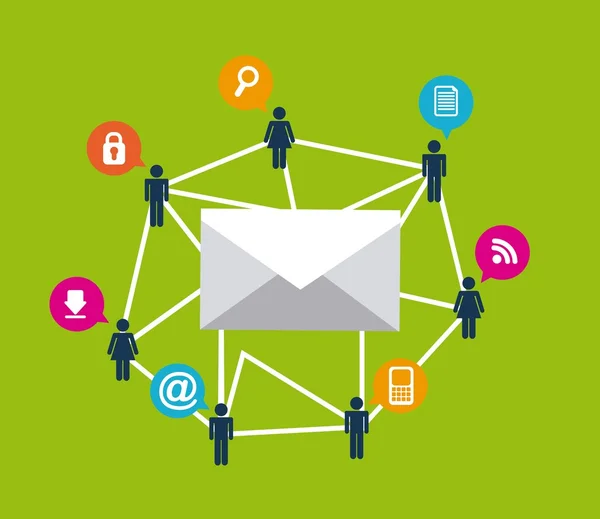The Role Of SMTP In Email Marketing: Strategies For Success
In the fast-paced world of digital communication, email marketing remains a cornerstone for businesses seeking to engage with their audience effectively. Behind the scenes of every email campaign lies the crucial protocol that facilitates the transmission of emails - the Simple Mail Transfer Protocol (SMTP). In this article, we delve into the pivotal role of SMTP in email marketing and explore strategies for achieving success in this dynamic and competitive landscape.
Understanding the Basics of SMTP
SMTP is a protocol used to transmit electronic mail between computers, ensuring that messages are sent and received reliably. It acts as the mail transfer agent, responsible for routing and delivering emails from the sender's server to the recipient's server. Without SMTP, the seamless flow of emails that we take for granted would be disrupted. Visit this website.
The SMTP Process
SMTP operates on a client-server model, where the client initiates the communication and the server responds accordingly. The process involves several key steps:
- Initiation: The email client connects to the SMTP server.
- Authentication: The client provides credentials to verify its identity.
- Message Composition: The sender constructs the email, specifying the recipient, subject, and content.
- Message Transfer: The SMTP server relays the message to the recipient's server.
- Delivery: The recipient's server stores the email until the recipient retrieves it.
Understanding this process is crucial for optimizing email marketing strategies.

Importance of SMTP in Email Marketing
Email marketing relies heavily on the efficient and reliable transmission of messages. SMTP plays a vital role in ensuring that promotional emails, newsletters, and communication reach the intended audience. Let's explore why SMTP is integral to the success of email marketing campaigns.
Deliverability and Reputation
SMTP directly impacts email deliverability and sender reputation. Internet service providers (ISPs) and email providers evaluate the sender's reputation based on factors like bounce rates, spam complaints, and engagement metrics. A well-configured SMTP server helps maintain a positive sender reputation, increasing the likelihood of emails reaching the inbox instead of being flagged as spam.
Personalization and Targeting
SMTP enables marketers to personalize email content and target specific segments of their audience. By utilizing SMTP to integrate customer data, businesses can send tailored messages, increasing engagement and conversion rates. This personalized approach fosters a stronger connection between the brand and the recipient.
Strategies for Successful Email Marketing with SMTP
Now that we understand the pivotal role of SMTP, let's explore strategies to enhance the effectiveness of email marketing campaigns.
Optimize SMTP Configuration
Ensure that your SMTP server is properly configured to adhere to industry standards. Implement authentication mechanisms like SPF (Sender Policy Framework) and DKIM (DomainKeys Identified Mail) to enhance security and credibility.
Monitor and Analyze Metrics
Regularly monitor key metrics such as open rates, click-through rates, and bounce rates. Analyzing these metrics provides insights into the performance of your email campaigns, allowing you to make data-driven adjustments for improvement.
Segment Your Audience
Use the capabilities of SMTP to segment your audience based on demographics, behaviors, or preferences. Targeted emails resonate more with recipients, leading to increased engagement and higher conversion rates.
![]()
Implement A/B Testing
Experiment with different elements of your emails, such as subject lines, content, and visuals, through A/B testing. This iterative approach helps identify what resonates best with your audience, refining your email marketing strategy over time.
Ensure Mobile Compatibility
With a significant portion of email opens occurring on mobile devices, it's crucial to ensure that your emails are mobile-friendly. Test your email campaigns on various devices to guarantee a seamless experience for all recipients.
Harnessing the Power of Automation
Implement Email Automation
SMTP, when integrated with an email marketing automation platform, can revolutionize your campaigns. Set up automated workflows triggered by user actions or specific time intervals. This ensures timely and relevant communication, nurturing leads, and maintaining engagement without manual intervention.
Opt for Scalable Solutions
As your email list grows, scalability becomes crucial. Choose an SMTP service provider that offers scalable solutions to accommodate increasing email volumes without compromising deliverability or performance. This ensures your campaigns can adapt to the evolving needs of your business.
Enhancing Email Security
Prioritize Email Security Measures
With cyber threats on the rise, ensuring the security of your email communications is paramount. Implement SSL/TLS encryption for secure data transmission and protect sensitive information. A secure SMTP setup not only safeguards your data but also builds trust with your audience.
Stay Compliant with Regulations
Adhere to email marketing regulations and privacy laws, such as GDPR and CAN-SPAM Act. Respect user preferences, provide clear opt-out mechanisms, and obtain explicit consent before sending marketing communications. Complying with these regulations not only avoids legal issues but also establishes your brand as trustworthy.
The Future of SMTP in Email Marketing
Embrace Emerging Technologies
SMTP continues to evolve alongside technological advancements. Explore emerging technologies like artificial intelligence and machine learning to optimize your email campaigns. Predictive analytics can help you anticipate user behavior, allowing for even more personalized and targeted communication.
Integrate with CRM Systems
Integrating SMTP with Customer Relationship Management (CRM) systems enhances the synergy between marketing and sales teams. This integration streamlines data management, allowing for a more comprehensive understanding of customer interactions and preferences. A cohesive approach between SMTP and CRM strengthens the overall customer experience.

